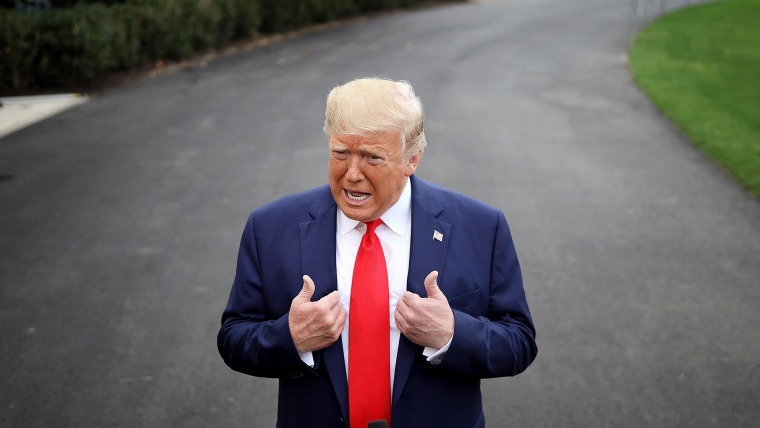Nicholas Burns is not someone easily mistaken for a hardball political operative. On the contrary, he's a career diplomat, who's worked for Democratic and Republican administrations, including serving as an ambassador under Bill Clinton and an undersecretary of State under George W. Bush.
With this in mind, it was notable to see Burns express public disgust yesterday after Donald Trump publicly urged China to go after Joe Biden ahead of the 2020 presidential campaign (and during delicate trade negotiations between the United States and China).
"This is a first in American history dating to 1789," Burns wrote on Twitter. "An American President has asked our strongest adversary, a communist dictatorship, to investigate his major opponent. Let that sink in. It is corruption -- morally and legally wrong."
The criticism was itself notable, though I was especially interested in his historical reference. The word "unprecedented" is probably used a bit too often, and some political observers fail to fully appreciate just how frequently history rhymes. But in this case, Burns' take wasn't hyperbolic: these circumstances are unique.
CNN published a piece this week from four historians -- Texas A&M's Elizabeth A. Cobbs, Arizona State's Kyle Longley, Colorado School of Mines' Kenneth Osgood, and the University of Texas at Austin's Jeremi Suri -- who agreed they've "never seen anything like" this Trump scandal.
In our numerous books on presidents from George Washington to Barack Obama, we have examined how American leaders conduct US foreign policy -- the good, bad, and ugly. Nothing really surprises us anymore.Until now.Trump's documentary record differs dramatically from his predecessors. A worrisome thread runs through each conversation. Trump appears laser-focused on his own fortunes to the exclusion of the national security of the United States. Unfortunately, this is part of a larger and startling pattern of Trump promoting his personal agenda ahead of the nation's interests.
It's worth emphasizing for context that the historians' piece was published on Wednesday -- the day before Trump stood on the White House's South Lawn and publicly urged two foreign governments to go after one of his domestic political rivals.
In general, there's a temptation to look to history for comparable examples, and then extrapolate from there. What did Americans do the last time we addressed circumstances like these? What was effective? How did honorable officials respond and how best can contemporary officials follow their example?
Trump, however, is blazing a uniquely pernicious path, leaving us without a historical map to follow.
